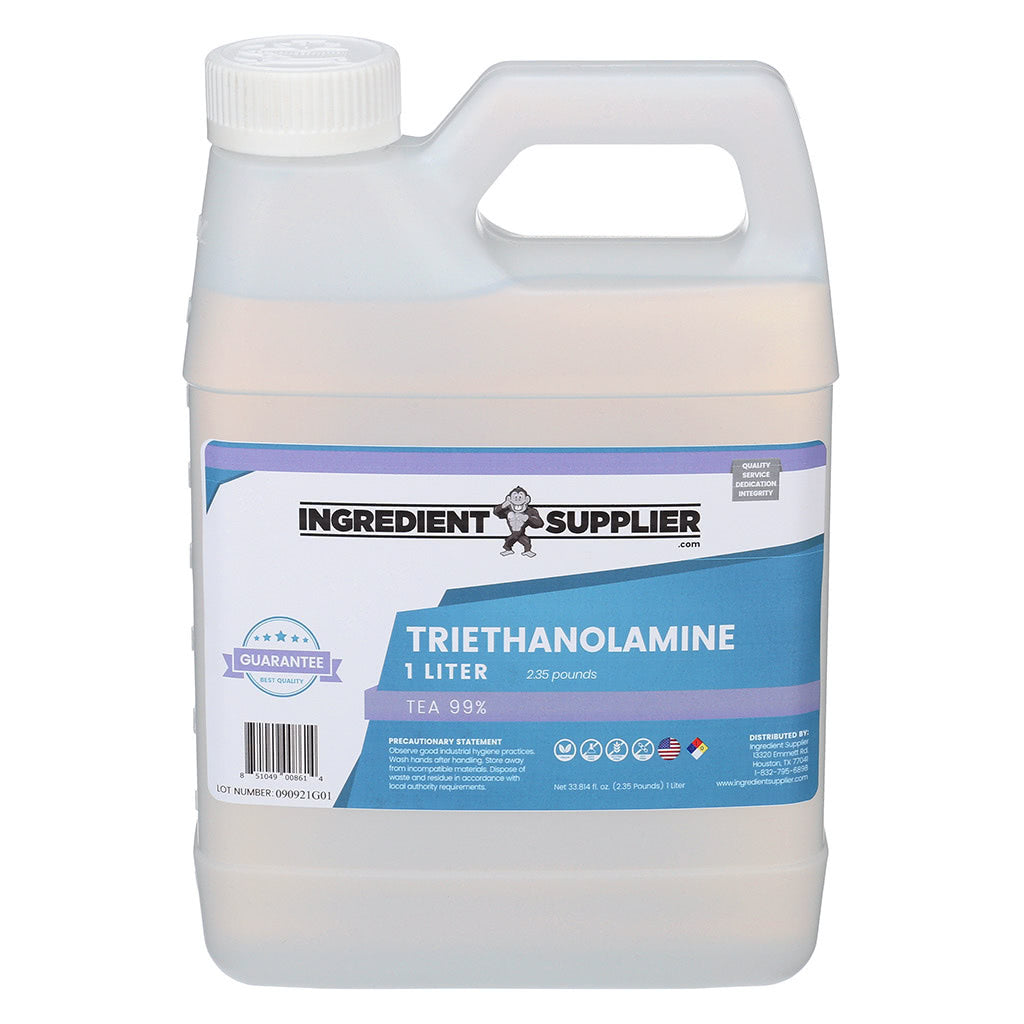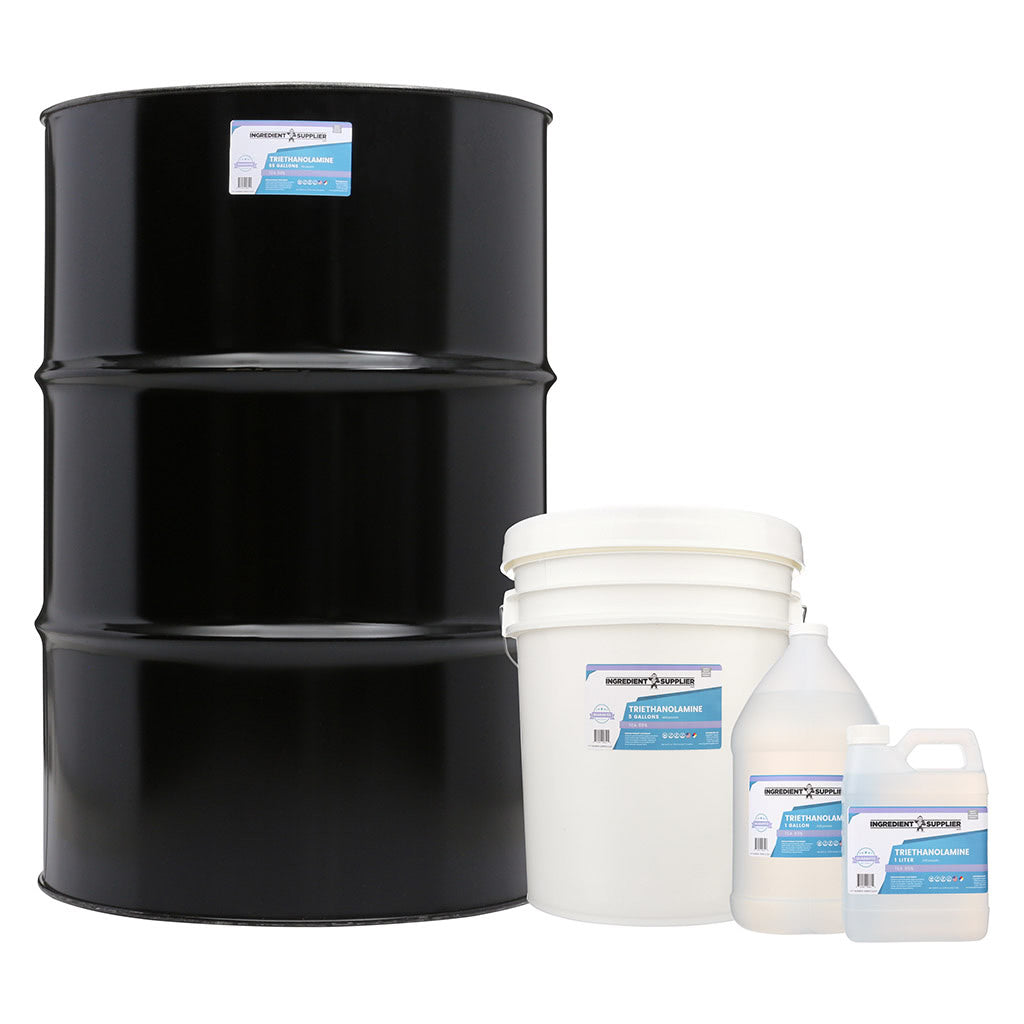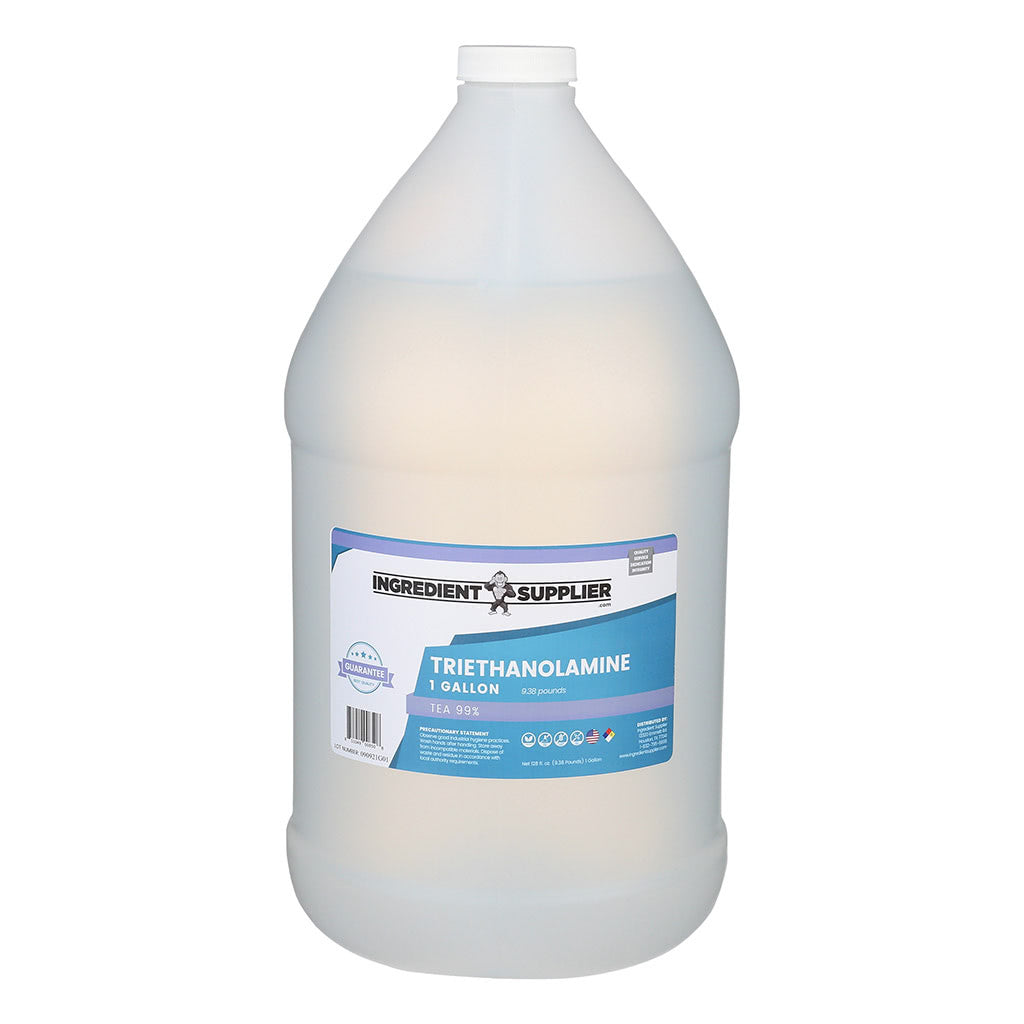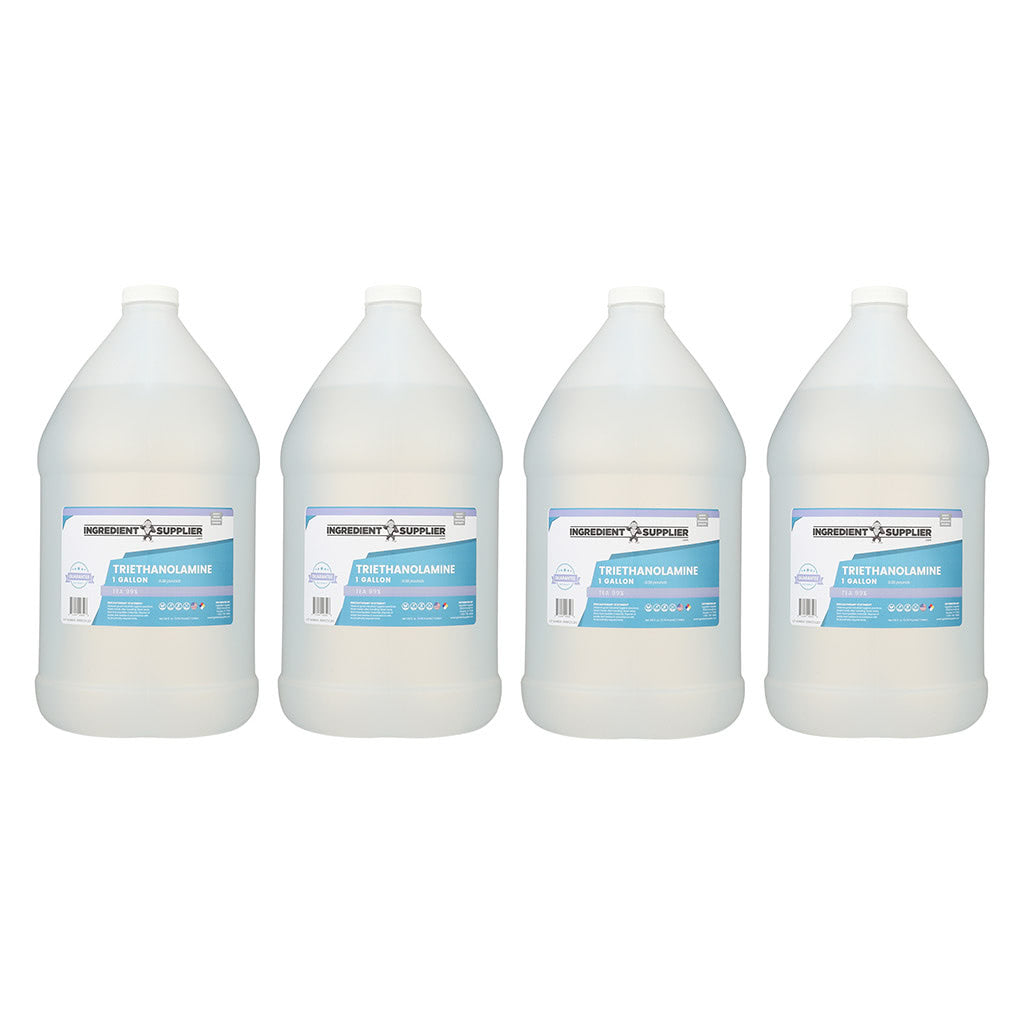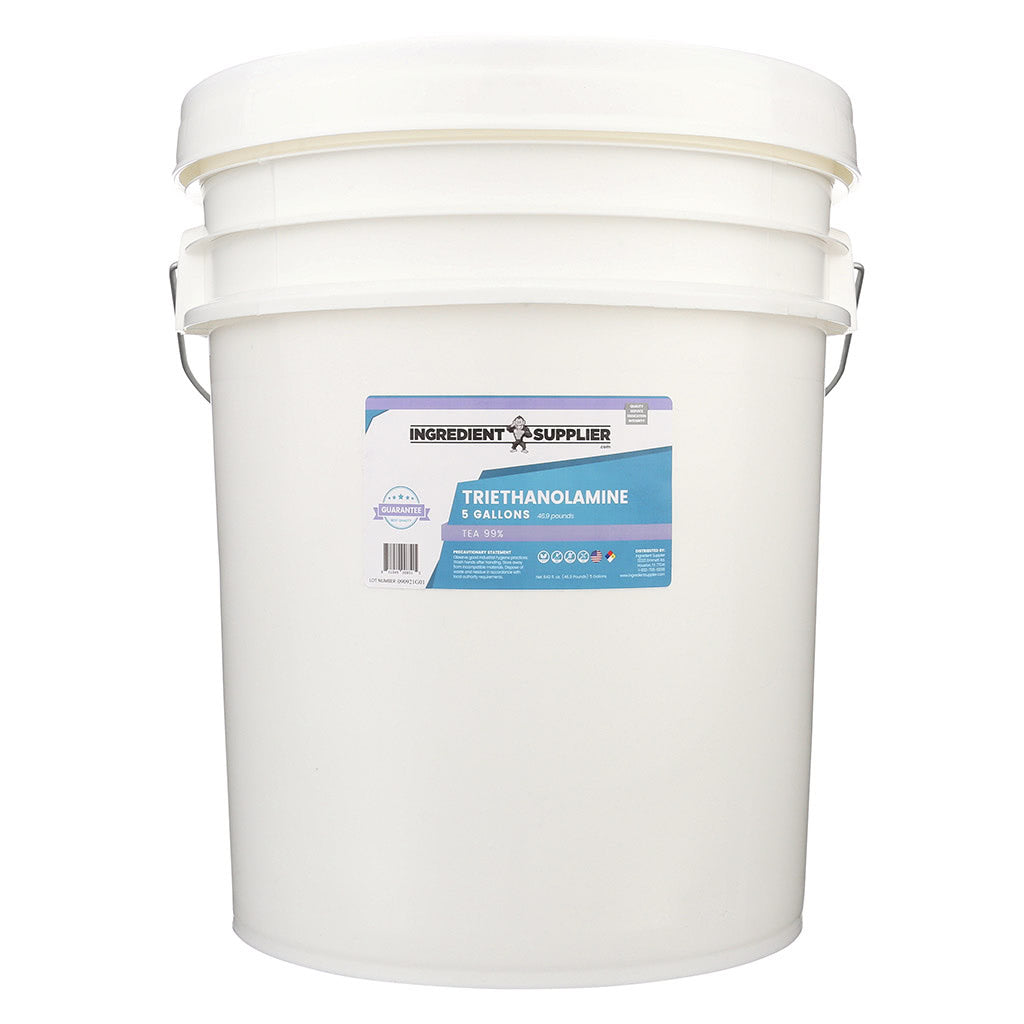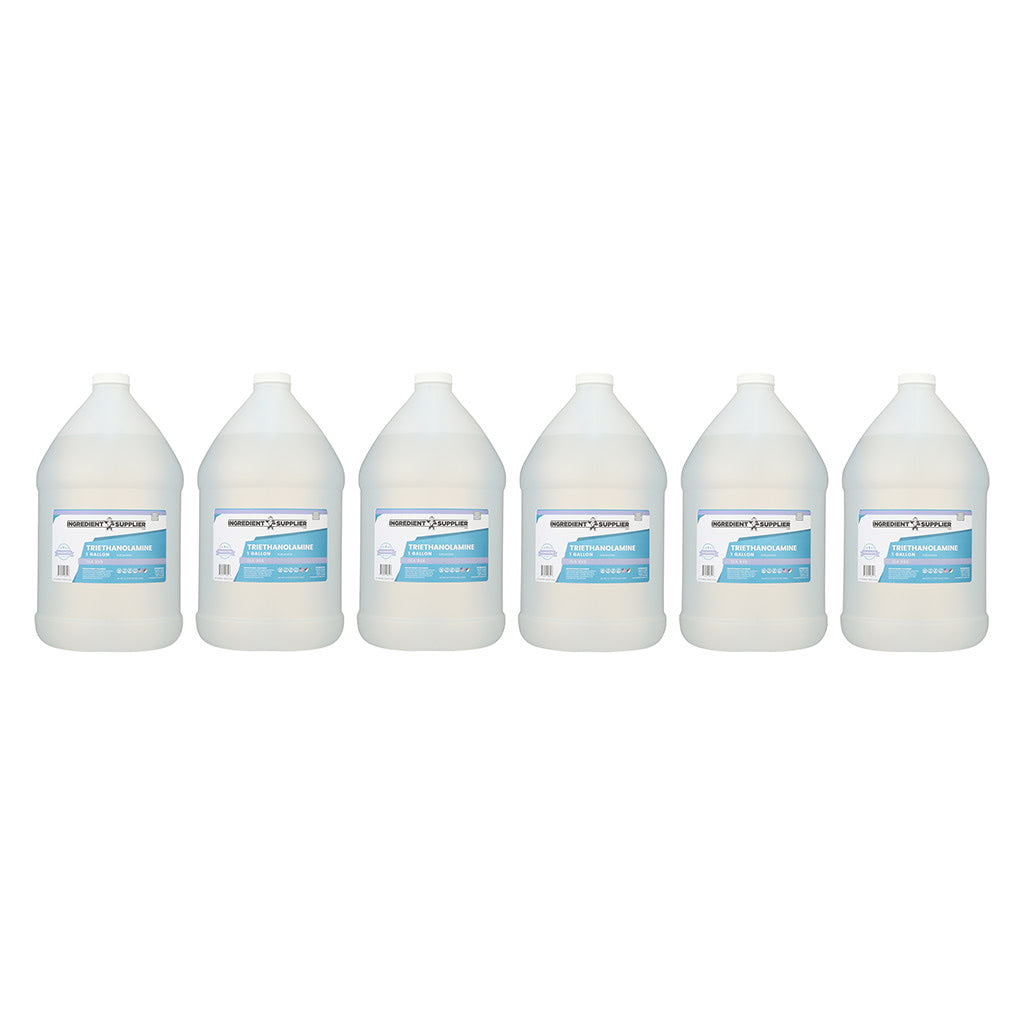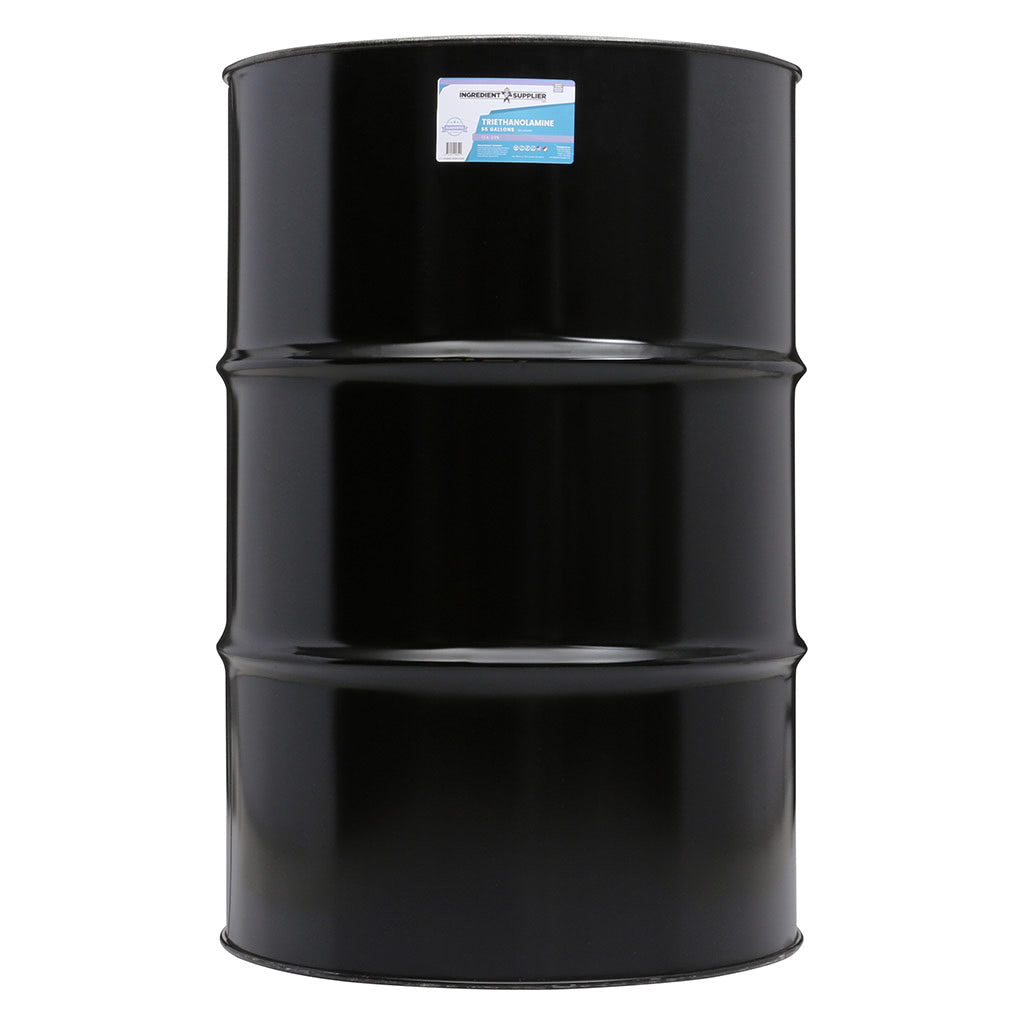Ingredient Supplier
Couldn't load pickup availability
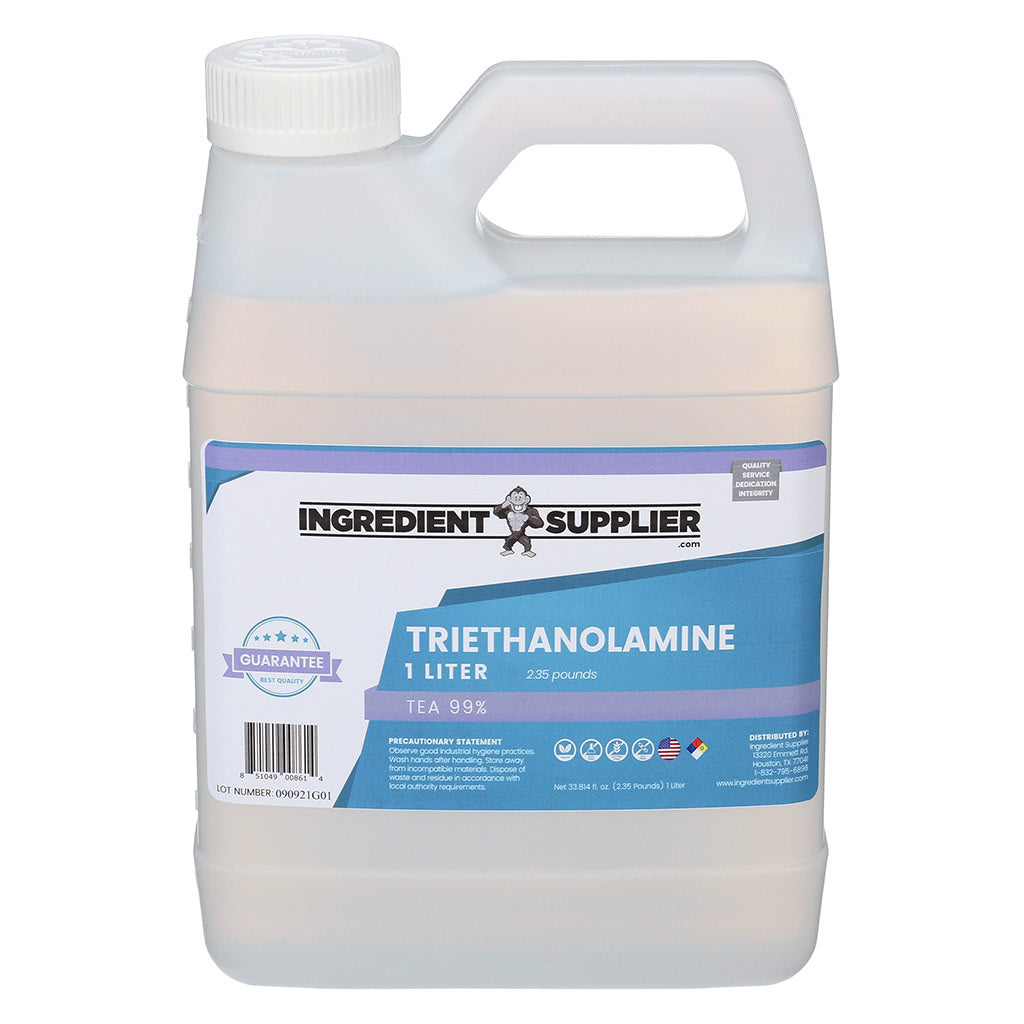
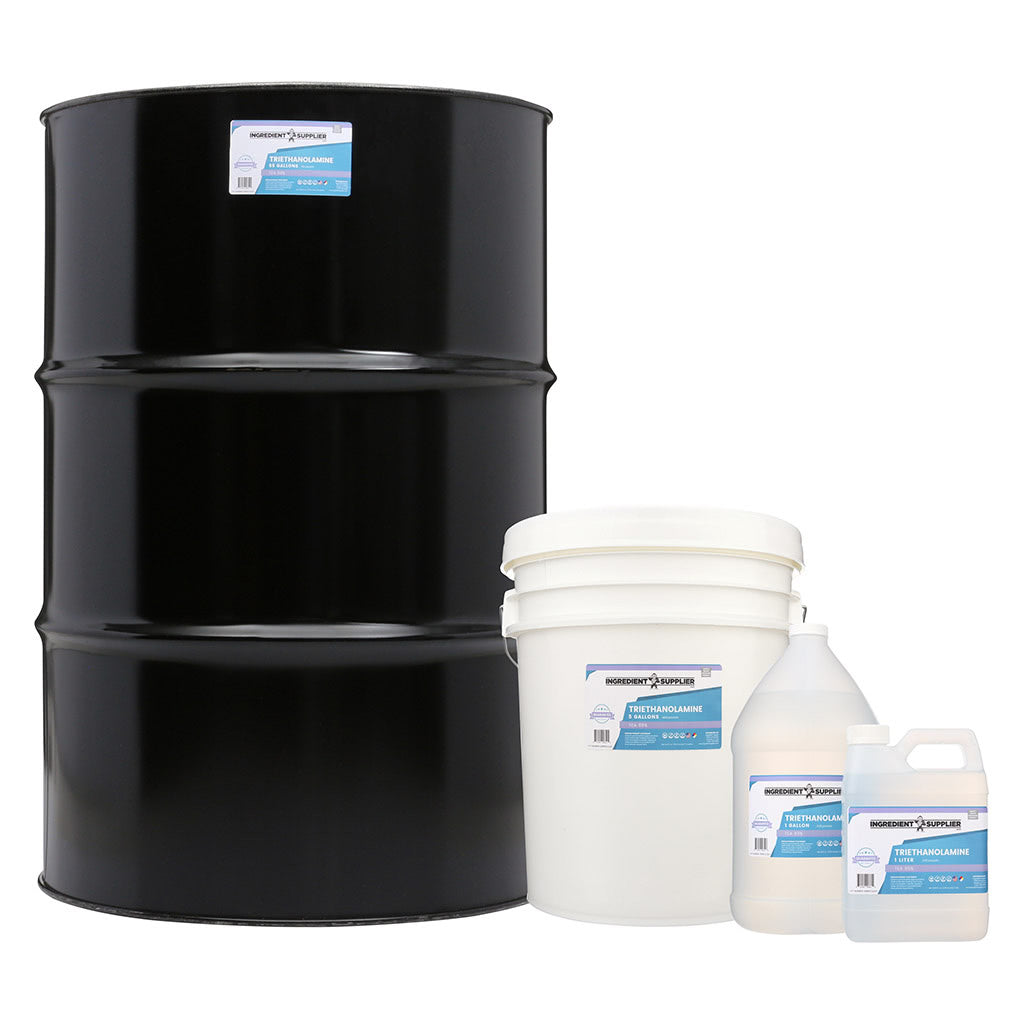
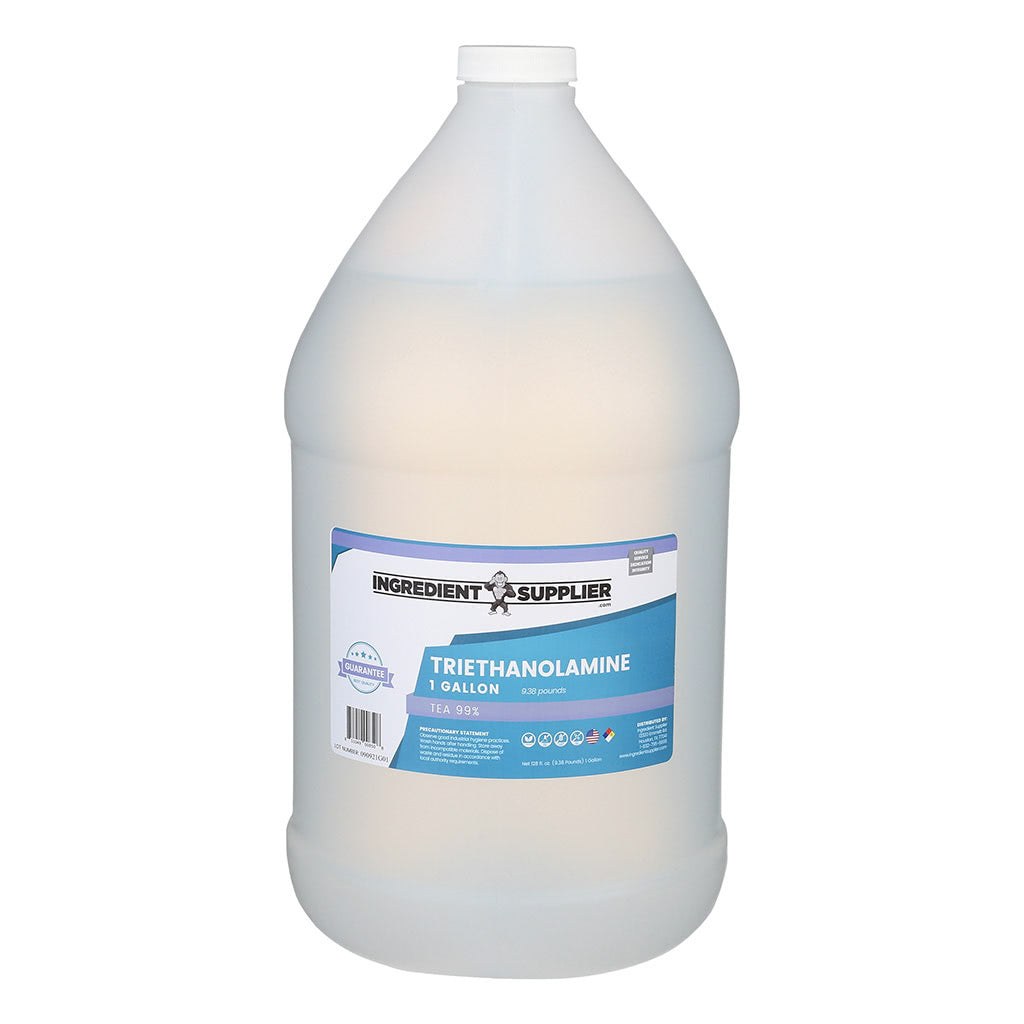
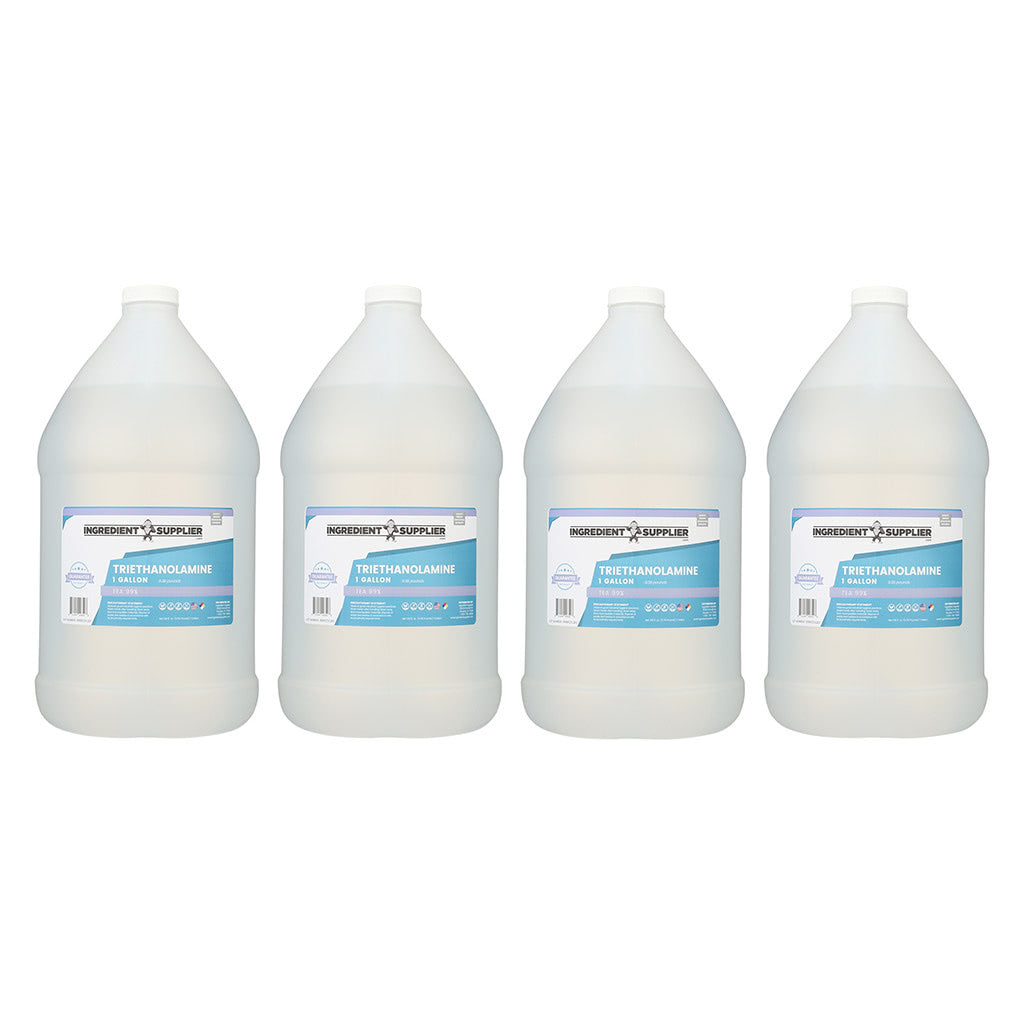
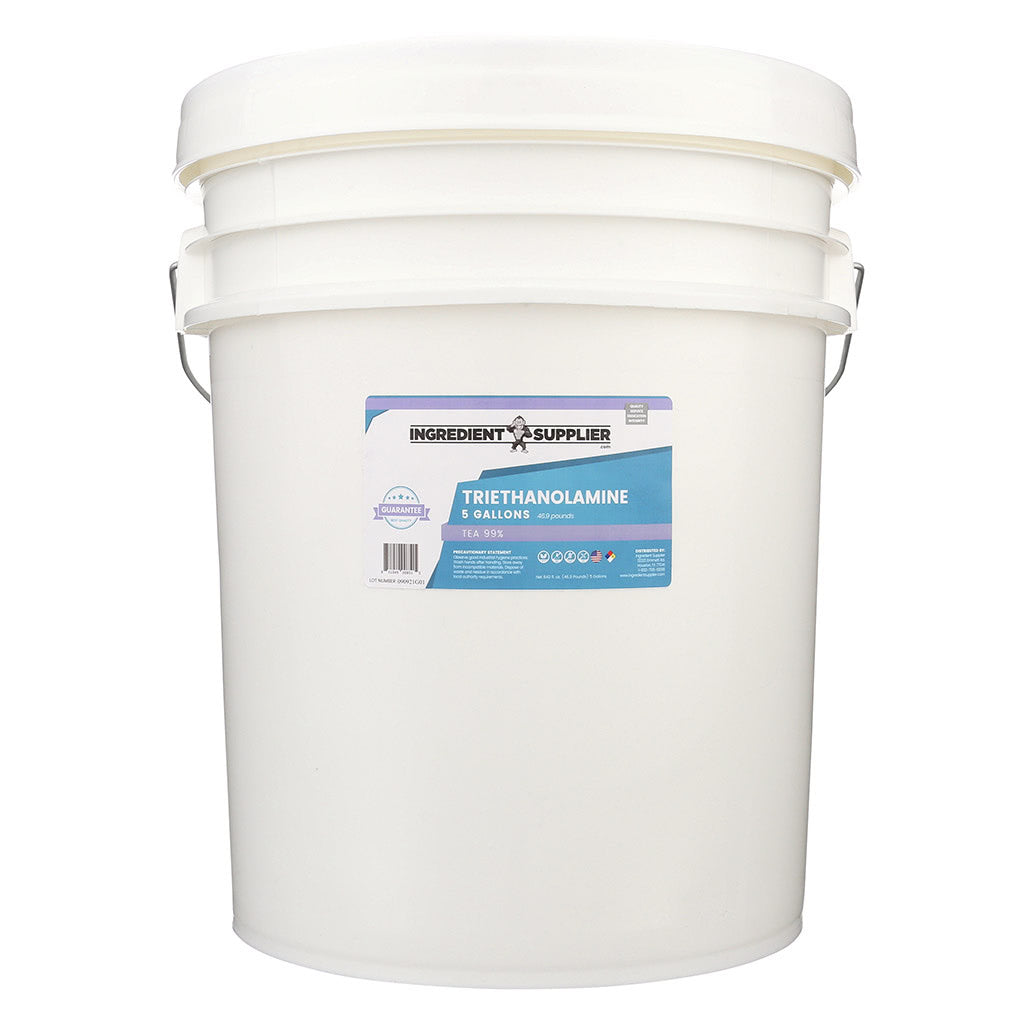
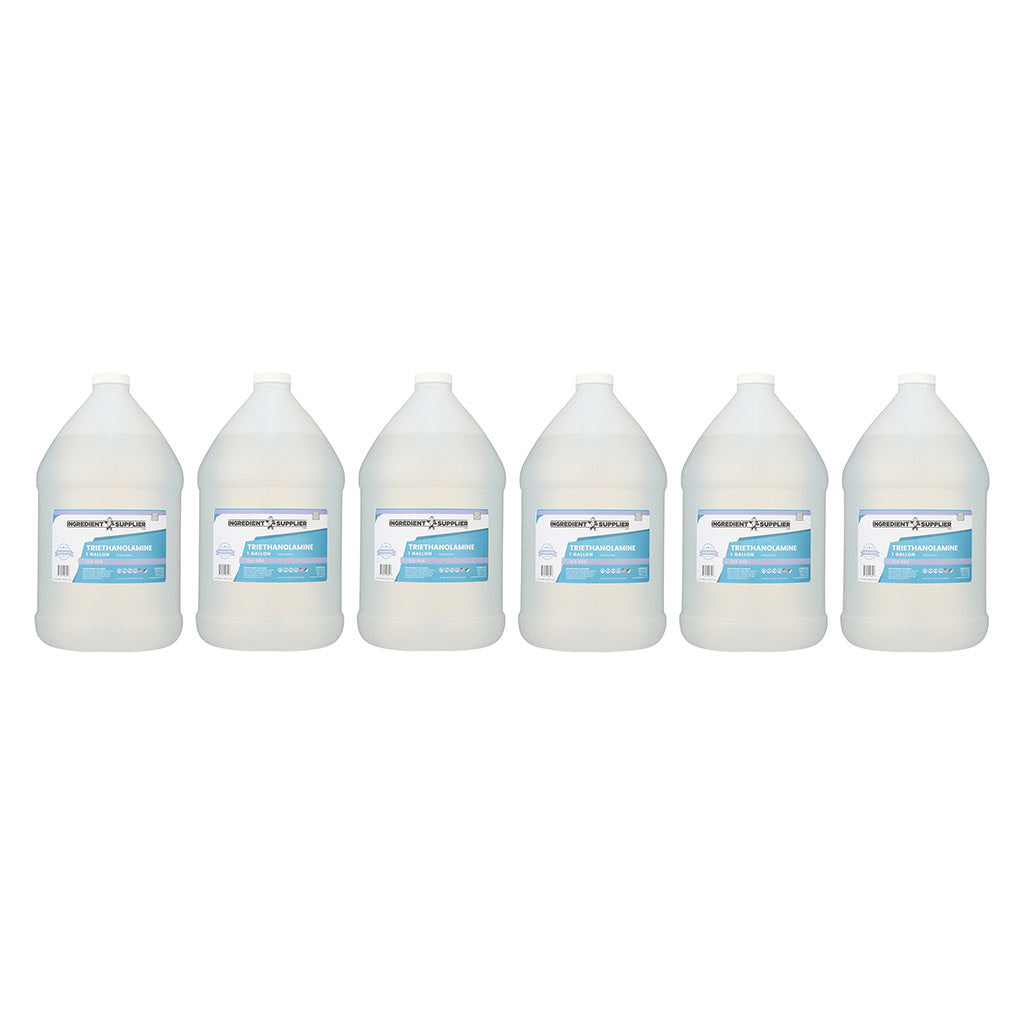
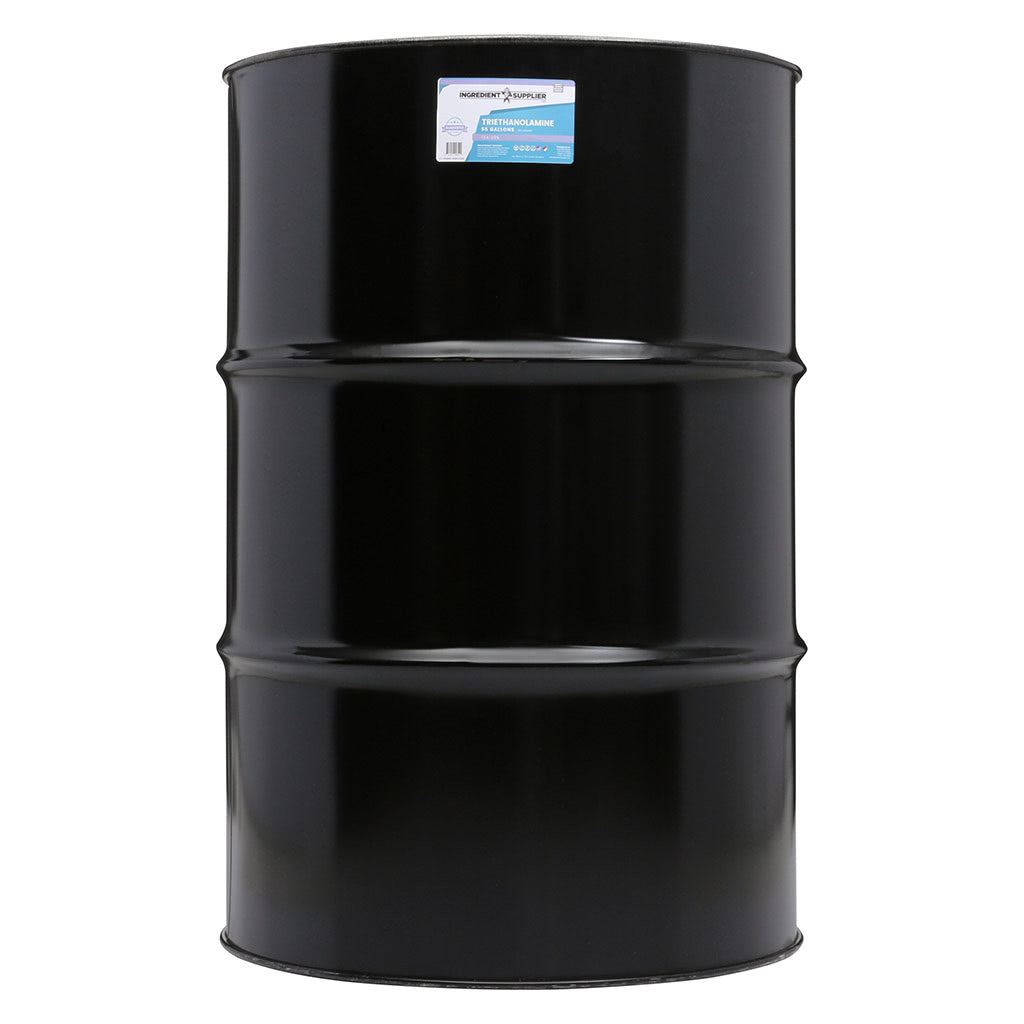
Download SDS
Triethanolamine 99%, commonly abbreviated as TEA, is an amine chemical renowned for its versatility and wide range of industrial applications. Composed of carbon, hydrogen, nitrogen, and oxygen, this clear to pale yellow liquid stands out for its remarkable 99% purity, ensuring exceptional quality and consistency. Triethanolamine is prized for its unique properties, serving as a valuable ingredient in formulations where pH adjustment, emulsification, and corrosion inhibition are crucial. With applications spanning industries such as cosmetics, textiles, metalworking, and chemical manufacturing, Triethanolamine 99% stands as a reliable and indispensable solution for processes that demand precision and reliability. In metalworking, Triethanolamine 99% enhances the performance of cutting fluids and lubricants, ensuring optimal efficiency and longevity. Its adaptability and purity make Triethanolamine 99% an essential component for those seeking reliable and high-quality solutions in industrial settings. Some common products where you may find TEA are in both commercial and residential paints, liquid laundry detergents, skin lotions, liquid dishwashing soaps, multi-purpose surface cleaners, shaving creams, and inks for printers.
Key Features:
- Multi-Functional: From multifunctional cleaning products to metalworking fluids and textiles, Triethanolamine 99% finds application in a diverse range of industries.
- pH Balancing: As an effective pH adjuster, Triethanolamine 99% is indispensable in formulations where precise control over acidity or alkalinity is crucial.
- Emulsifying Agent: Harness its exceptional emulsifying capabilities to achieve stable blends and formulations in various industrial and commercial settings.
- Corrosion Inhibition: Benefit from Triethanolamine's corrosion inhibition properties, making it an ideal choice for metalworking fluids and industrial lubricants.
Applications:
- Chemical Manufacturing: An essential ingredient in various chemical processes requiring precise control over pH and formulation stability.
- Industrial Lubricants: Improve the lubricating properties of oils and greases.
- Metalworking Fluids: Improve the performance and longevity of cutting fluids and coolants, as well as prevent corrosion.
- Textiles: Facilitate dyeing processes and enhance fabric softness.
- Cleaning Products: Act as a pH regulator and emulsifier in various household and industrial cleaners.
- Other uses: Cement grinding aid, lapping, agriculture and photographic chemicals, rubber, urethane foam production, vat printing pastes, acetate rayon dyes, and more.

